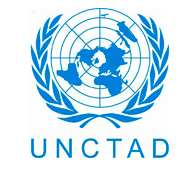Tempo de leitura: 2 minutos
Special economic zones are widespread across the developing world. Policymakers seek to develop special economic zones with the aim of attracting foreign direct investment, achieving higher experts and creating jobs. Indirect economic benefits range from upgrading of the local industrial base to being catalysts for innovation, knowledge and technological spillovers.
Against a backdrop of growing global interest in zone-based development strategies, an increasing number of countries are adopting new special economic zone regimes or revitalizing existing ones. At the regional level, attempts by African countries to set up special economic zones that deliver on their expected benefits have so far encountered some challenges. Certain bottlenecks have often determined the limited performance of zones operating in the continent, and these are discussed in this publication.
The African Union Commission, the United Nations Conference on Trade and Development and the German Agency for International Cooperation are joining forces through this Handbook on Special Economic Zones in Africa to address the opportunities and challenges involved in setting up zones in Africa, working hand in hand with member States and key stakeholders such as the African Economic Zones Organization. The objective is to come up with an Africa-specific model of special economic zones based on lessons from experience and best practices, with a view to supporting the African Continental Free Trade Area and in the process accelerating the integration of Africa.
The Handbook takes stock of the current state of play of African special economic zones. lt identifies several good practices through the analysis of case studies reflecting a variety of critical aspects and representing the specificities of diverse African regions. Relevant lessons – ranging from the importance of the strategic focus and locational advantages to heightened attention to enhanced environmental and social standards – are brought out.
Through the Handbook on Special Economic Zones in Africa, we wish to provide a response to the needs of African policymakers through a set of policy recommendations stemming from the latest research and international best practice on special economic zones. Looking ahead, the issues at stake highlighted by the Handbook remain instrumental to creating sustainable, holistic and adaptive special economic zone policies capable of capitalizing on existing opportunities and withstanding future challenges.






Os comentários foram encerrados, mas trackbacks e pingbacks estão abertos.